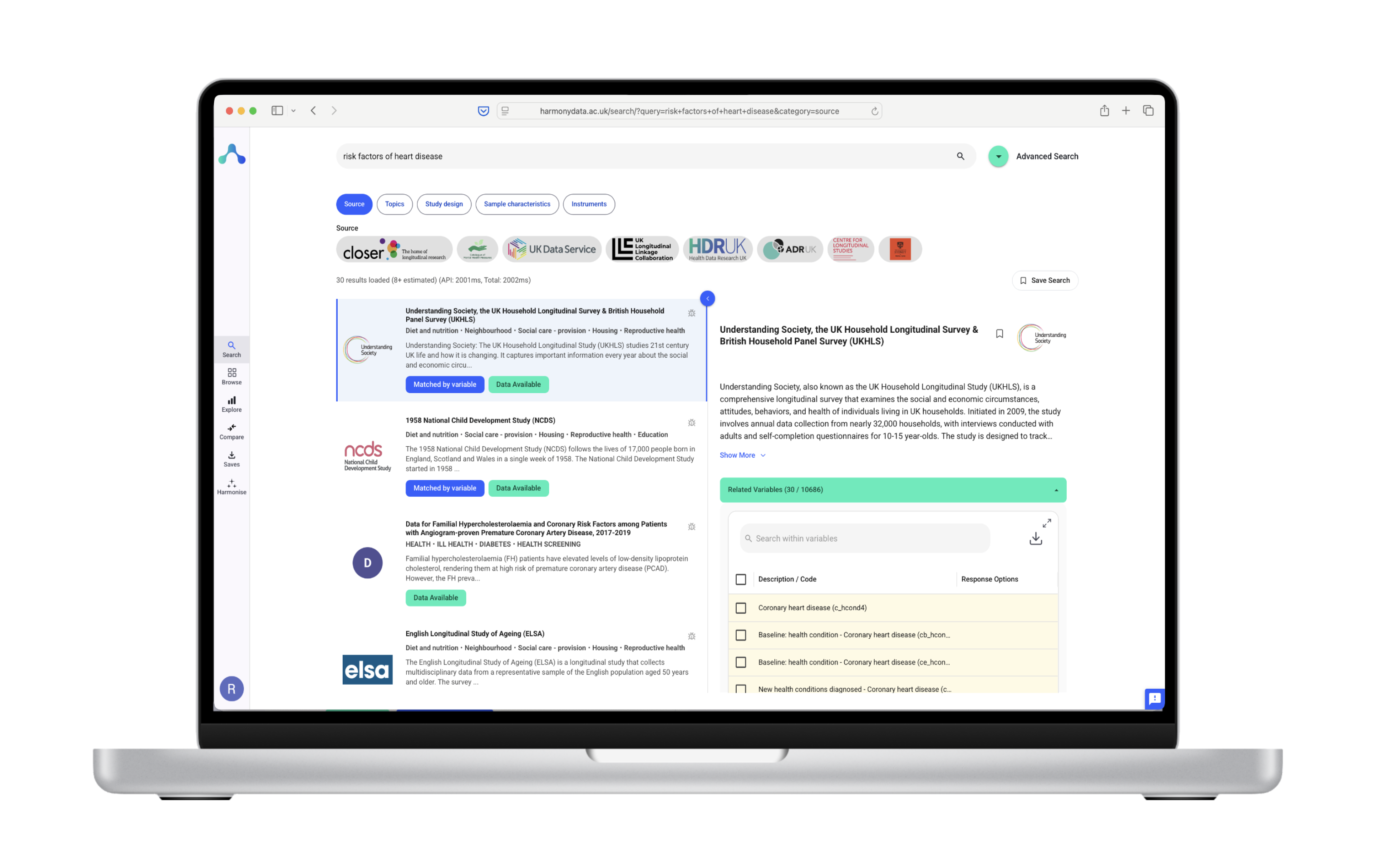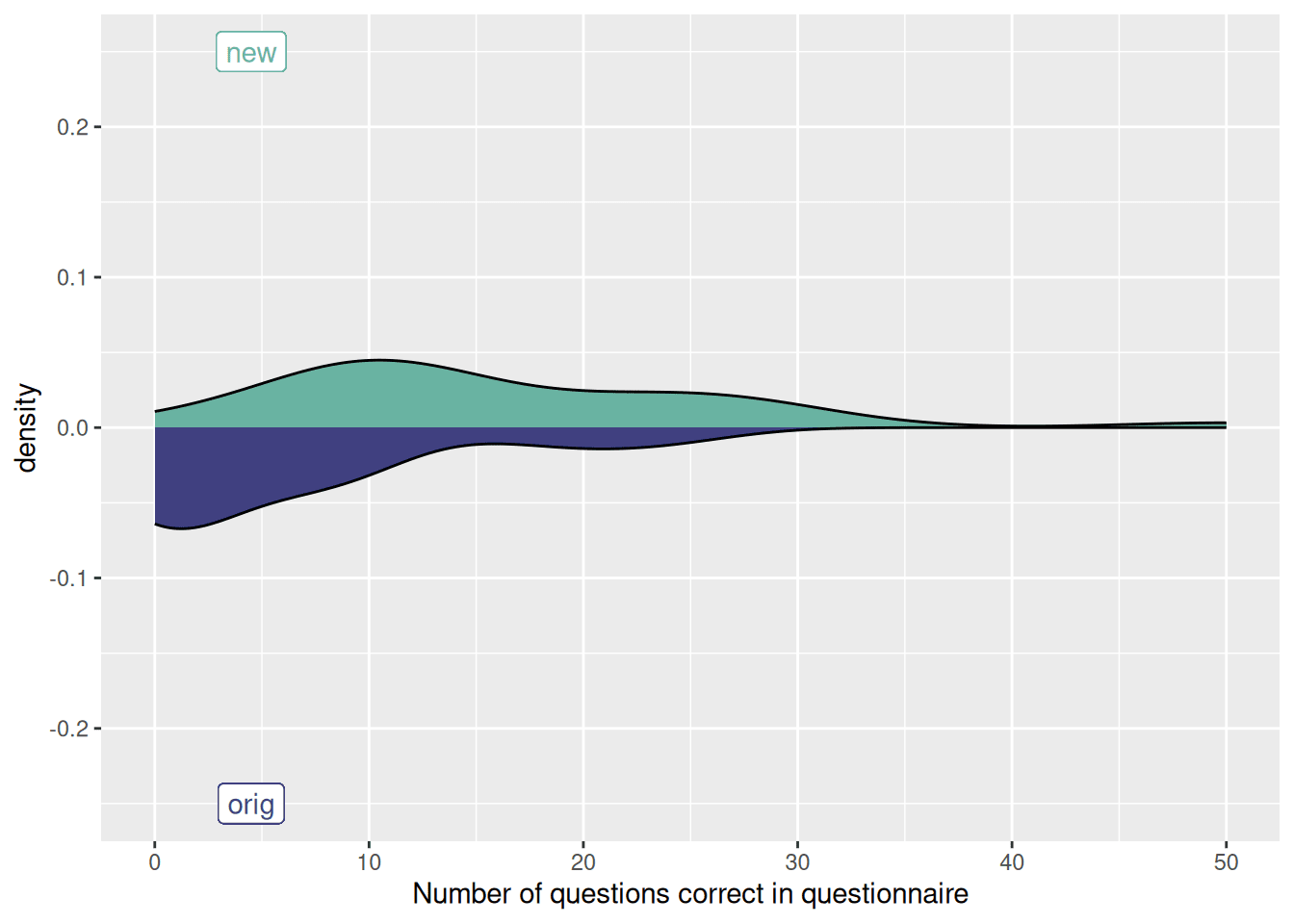
University College London has posted on their website about the Harmony project.
The team on the Harmony project contacted the Software Sustainability Institute (SSI) and had some conversations with Steve Crouch from the SSI and the University of Southampton about making our software more sustainable.
Read more on the SSI’s website
Ulster University’s Psychology department post writes, “The Harmony project is running at Ulster University in collaboration with University College London, the Universidade Federal de Santa Maria and Fast Data Science.”…
Read about Harmony on Ulster University’s website
Bettina Moltrecht from University College London (UCL) gave a presentation on the development and use of Harmony, a Natural Language Processing (NLP) tool to facilitate measurement harmonisation across studies.
Harmony is a new AI-driven tool that can help researchers identify, compare and match survey items across multiple studies in a more efficient and transparent way. It can be used to harmonise questionnaires, i.e. identify similar question items that tap into the same symptom from different scales, and test their measurement properties and equivalence empirically – thus enabling researchers to compare and combine findings across existing studies, even when different measures have been administered.
Dr Moltrecht presented use-case examples using real world meta-data from two UK cohort studies, findings from her ongoing validation research, and how existing platforms can benefit from Harmony. She also invited the audience to discuss familiar challenges and possible solutions around data harmonisation, especially considering cultural and contextual adaptations.
During a recent free half-day event, attendees were introduced to two new digital tools for researchers working with longitudinal data: Harmony and TIDAL.
Harmony is a tool that facilitates fast and easy harmonisation of questionnaires commonly used in mental health research. It uses natural language processing to identify commonalities across items, which allows researchers to combine and compare data from multiple studies.
TIDAL is a user-friendly tool that supports experienced and less experienced researchers with the analyses of longitudinal data, such as trajectory modelling.
The event provided insights on retrospective measurement harmonisation and the analysis and visual representation of trajectories using longitudinal survey data. Attendees also had the chance to try both tools using prepared datasets and ask questions.
By attending this event, researchers gained the knowledge and skills they need to use Harmony and TIDAL to improve their research.
The online platform Harmony, a tool for harmonising questions, was developed by researchers from the Federal University of Santa Maria (UFSM), University College London, and Ulster University. Harmony can identify which questions correspond to each other in different questionnaires, even if the questions are in different languages.
Dr. Maurício Scopel Hoffmann, a professor at the Department of Neuropsychiatry at UFSM, participated in the development of Harmony. He explained that the platform can help researchers compare data from different questionnaires and aggregate data from different banks.
To use Harmony, researchers simply drag and drop mental health questionnaire spreadsheets and PDFs into the tool. The platform will then estimate similar questions so that the researcher can export the result in Excel format or as an image and share it with colleagues.
The project was funded by the Wellcome Trust, a British philanthropic institution that supports research.

